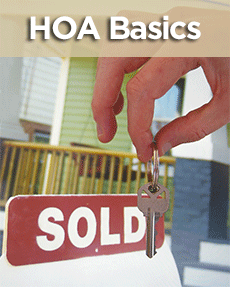 What is an HOA or homeowners association? Fundamentally, an HOA is a body that sets rules and restrictions for people that belong to neighborhood communities for the benefit of the community as a whole.
What is an HOA or homeowners association? Fundamentally, an HOA is a body that sets rules and restrictions for people that belong to neighborhood communities for the benefit of the community as a whole.
These communities can take several forms, and it is generally a condition of purchasing a home in such communities that you join the HOA. An obvious example is a condominium, where you would own the inside of the condo, but neither the fabric making up the structure nor the common services and amenities provided.
Another example is a gated community, where residents are responsible for the maintenance of everything within the gate: sidewalks, lighting and security being just three obvious examples. Others may be landscaping, communal facilities such as fitness rooms and pools, and also rules such as pets and noise.
There are several other types of community that can form such an association, including leased land property and new housing developments with common shared areas such as tennis courts that are the residents’ responsibilities. Here are some basics to explain how they work and how they can be set up.
Setting Up an HOA
To set up an Association you must first establish your state’s property code, and are advised to use a real estate attorney or even contact your mortgage advisor. The developer, if appropriate, must agree and will likely also help you with the process. The HOA must be set up as a company, and you will first have to form a board of at least 4 members with the usual officers: chair, secretary and treasurer.
It is important to contact every member of the community and get them involved, because if membership was not a condition of purchase you could have a problem if any disagree. This is why using a lawyer experienced in this type of work is important.
Homeowners associations are set up with non-profit articles of incorporation, conditions and restrictions and bylaws that apply to the area or communities involved. There will be a board of directors, and each homeowner will make monthly payments to the HOA treasurer. If you intend purchasing a home in a neighborhood with an HOA, make sure you fully understand its bylaws and what you can and cannot do with your home before purchasing.
Purchasing a Home in a Homeowners Association Area
If you are purchasing a home, and the property you like is situated in an existing HOA area, there are certain things you must establish before signing any contracts.
Restrictions may apply on the color of your exterior decoration (doors, windows, fences, walls, etc), and even whether or not you are permitted to dry your washing outdoors, have a real log or coal fire, the size of your satellite dish (or even if you are permitted one), whether you are allowed pets, and if so what species and size. Many do not allow cats, while yappy dogs may also be frowned upon.
There are many other potential restrictions, such as the design and size of fences and hedges, the type of blinds, shutters or drapes permitted on windows overlooking the street and whether or not you can park your car in the street or even in your driveway.
These are just simple examples, and most communities have reasons for applying them. They generally tend to enhance the look and peacefulness of a neighborhood, and most are not overly restrictive. Make sure you know what the HOA rules are in your neighborhood before making a decision to purchase a home.
Homeowners Associations Rules
Among the Homeowners Association rules you should establish are:
- Restrictions on external décor and dimensions of fences and hedges.
- Must you keep your garden or backyard tidy?
- Are you allowed a barbecue in your backyard?
- Are you permitted pets?
- I street parking permitted?
- Can you park in your driveway – many do not allow certain types of vehicle.
- Can you install solar panels – some HOA agreements o not permit these.
- Does your HOA have the power to approve or reject projected home improvements, such as adding a conservatory or extra garage?
- What is an HOA in a neighboring community doing with regard to the above – is yours average, lenient or strict?
- What happens if you break a rule?
- Can the HOA foreclose if you miss payments?
There are many more aspects of your HOA that you should establish before deciding to purchase a property. One of these is how the HOA is managed – is it strict or lenient? Another is whether there are personality clashes within the board, and how that might affect decisions made that could affect you.
A homeowners association can benefit a community if run efficiently. An HOA can benefit you in many ways, particularly in maintaining the look of the district and the amenities available to your family. The vast majority believes them to enhance their community and help to develop a genuine community spirit.



About The Author: Kenneth Le
More posts by Kenneth Le